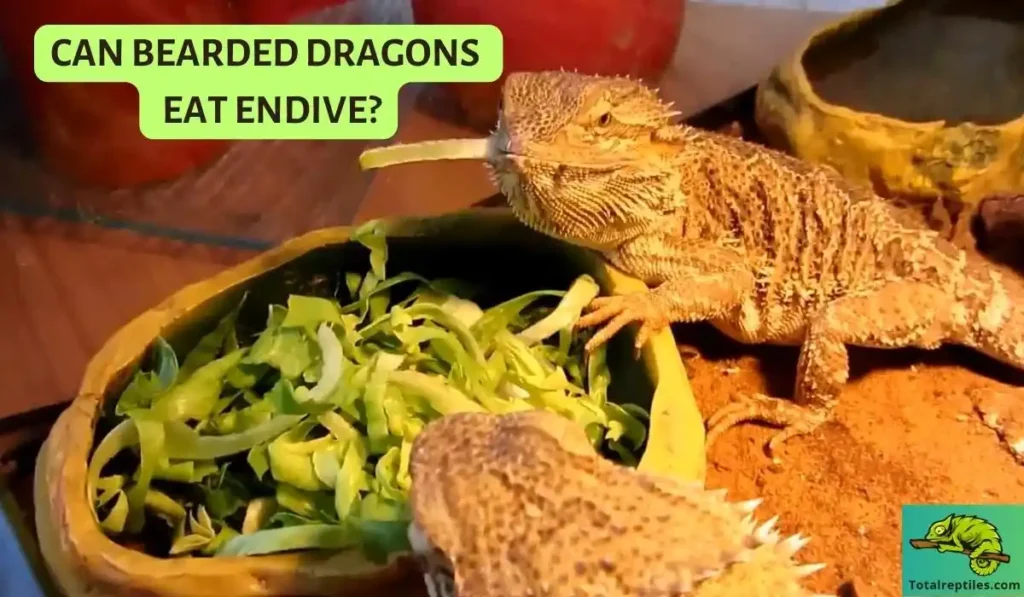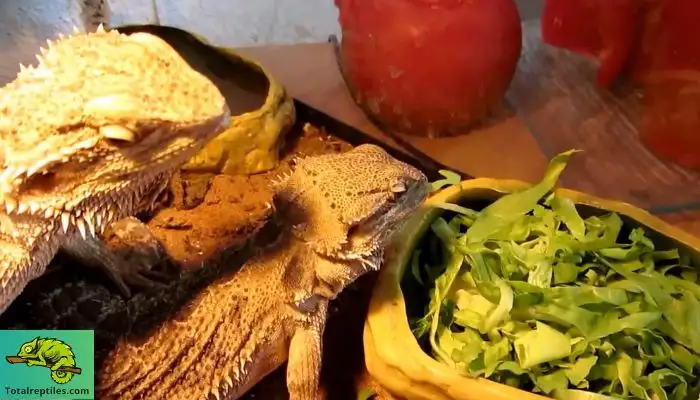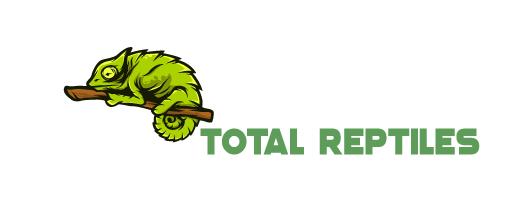Yes, they can! Endive, with its low oxalate content, is a safe and nutritious addition to a bearded dragon’s diet. This green vegetable offers water, fiber, calcium, and critical vitamins and minerals. Its vibrant leaves provide visual stimulation while catering to the reptile’s palate. Too much endive can cause diet imbalances, so moderation is crucial.
As responsible caregivers, we must provide our little companions with a diet that complements their well-being. A question frequently arises Can bearded dragons eat endive, a leafy green known for its enticing crunch and nutritional profile?
This blog post will explore whether or not bearded dragons can eat endive, what nutritional benefits it provides, and any potential risks associated with feeding it to your pet. By the end of this post, you will better understand whether Endive is a suitable addition to your bearded dragon’s diet. Hold onto your seats as we explore the delicious world of bearded dragons and their leafy companions!

Nutritional Facts of Endive
Endive (Cichorium endivia) is a nutritious leafy green vegetable that can benefit a bearded dragon’s diet. The table below presents accurate nutritional data for Endive, sourced from the USDA Food Data Central.
| Nutrient | Amount per 100g |
| Calories | 17 kcal |
| Protein | 1.25 g |
| Carbohydrates | 3.35 g |
| Dietary Fiber | 3.1 g |
| Sugars | 0.3 g |
| Fat | 0.25 g |
| Water | 93.8 g |
| Calcium | 52 mg |
| Phosphorus | 28 mg |
| Potassium | 314 mg |
| Vitamin A | 2170 IU |
| Vitamin C | 6.5 mg |
| Vitamin K | 231 µg |
| Folate | 142 µg |
| Beta-Carotene | 1300 µg |
This leafy green also provides dietary fiber, which aids digestion and promotes gut health. Endive is a good weight-management supplement for bearded dragons because it has fewer calories and fat.
When adding this leafy to your bearded dragon’s diet, consult a reptile specialist or veterinarian for a balanced diet with various plants, insects, and supplements.
Note: Nutrient values are subject to variations based on factors such as cultivation conditions and sourcing. Always verify nutritional information before feeding your bearded dragon.
Unveiling the Nutritional Treasures: Endive’s Benefits for Bearded Dragons
A well-balanced diet reigns supreme in the enchanting realm of bearded dragon care. While insects play a crucial role, the world of vegetables should not be underestimated. Let’s journey into the world of Endive and explore how its treasure trove of vitamins and minerals can elevate the bearded dragon’s health.
Vitamin A: The Vision and Immunity Ally
Endive is the Vitamin A champion for bearded dragons’ perfect vision and immunity. This dynamic vitamin ensures that their eyes remain sharp and vibrant. It also fights infection, helping your dragon survive in their environment.
Vitamin K: Bone Strength’s Best Friend
As stalwart adventurers, bearded dragons rely on strong bones to carry them through their journeys. Enter Vitamin K, an unsung hero that promotes blood clotting and fortifies bone health. Endive’s contribution of Vitamin K ensures that fractures remain at bay, allowing your dragon to traverse their world with confidence.
Vitamin C: The Immune Booster Extraordinaire
Just like knights need armor, bearded dragons require a shield against ailments. This is where Vitamin C swoops in. The endive is rich in this vitamin, which boosts the dragon’s immune system to fight healthy enemies. From wound healing to disease resistance, Vitamin C showcases its versatility.
Water: The Elixir of Vitality
Hydration is a precious commodity for bearded dragons in the arid landscapes of their natural habitat. Endive steps up as a water-rich ally, quenching their thirst and safeguarding against dehydration. This natural hydration source fosters smooth digestion, optimal body temperature, and kidney well-being.
Calcium: The Bone Builder’s Blueprint
The foundation of a dragon’s agility lies within its bones. Endive contributes to this foundation by offering calcium, an elemental component of bone structure. Incorporating an endive gives your dragon the building blocks it needs for strong and resilient bones.
Potassium: Electrolyte Equilibrium
Endive’s impressive potassium content serves as an electrolyte regulator for your dragon’s body. Maintaining proper fluid balance, muscle function, and nerve transmission. Potassium ensures that your scaly friend’s internal orchestra plays harmoniously.
Beta-Carotene: The Precursor to Vitality
Beta-carotene is a precursor to Vitamin A, which showcases Endive’s commitment to holistic nourishment. This powerful antioxidant enhances the immune system and contributes to skin health and vibrant scales, making your dragon a sight to behold.
Endive emerges as a beacon of nourishment in the world of bearded dragons. Its Vitamins A, K, and C offerings, coupled with hydration, calcium, potassium, and beta-carotene, paint a vivid picture of holistic well-being. By embracing this vegetable as part of your dragon’s diet, you embark on a journey that leads to vitality, strength, and a radiant life.
Disadvantages of endive for bearded dragons
While Endive is packed with nutrients, there are certain downsides to incorporating it into your bearded dragon’s diet. In this section, we’ll shed light on the disadvantages of endive for bearded dragons.
Allergic Syndrome
As responsible pet owners, monitoring our bearded dragons for any signs of allergies is crucial. While endive is generally considered safe, some dragons might exhibit allergic reactions when introduced to this leafy green.
Allergic symptoms can range from mild itching and skin irritations to more severe manifestations like swelling or difficulty breathing. Identifying these signs early on is essential to prevent further complications. It’s advisable to consult a veterinarian before introducing endive or any new food into your bearded dragon’s diet.
Digestive Problems
Bearded dragons have a sensitive digestive system that requires a well-balanced diet to function optimally. While Endive is a source of fiber and essential nutrients, it can also contribute to digestive problems without moderation. The high fiber content in the endive may lead to gastrointestinal distress, such as bloating, gas, or diarrhea.
The endive’s calcium-to-phosphorus ratio can also upset bearded dragons’ mineral balance and cause metabolic bone disease. It’s important to offer a variety of easier vegetables on their system and ensure the correct calcium-to-phosphorus ratio.
Gallstones Risk
Gallstones are another concern associated with feeding endive to bearded dragons. Endive contains oxalates, naturally occurring compounds that can bind to calcium and form insoluble crystals in the digestive tract. Over time, these crystals can contribute to the development of gallstones.
Gallstones can obstruct the digestive system and lead to discomfort, loss of appetite, and lethargy in bearded dragons. The risk is higher if endive is a staple food in their diet. Limiting the intake of high-oxalate vegetables like Endive is advisable instead of focusing on options with lower oxalate content.
Prioritize a well-rounded and balanced diet that aligns with the nutritional needs of your scaly companion. Consulting a veterinarian for guidance on suitable foods and portion control can go a long way in ensuring your bearded dragon’s health and happiness. After all, a thriving and content bearded dragon is the ultimate reward for your dedicated care.
How Often Can Bearded Dragons Eat Endive?
Bearded dragons can enjoy endive occasionally as part of a varied diet. Offering leafy greens like endive around 2-3 times a week is recommended. It shouldn’t constitute more than 20% of their overall diet. Prioritize a mix of vegetables, insects, and appropriate supplements for optimal nutrition.

Remember to chop the endive into manageable sizes to prevent choking hazards. Monitoring their response and health is key; every dragon’s dietary needs can slightly differ. Consulting a veterinarian or reptile expert ensures a well-rounded diet for your beloved beardie.
How to Prepare Endive for Bearded Dragons
Follow these easy steps to prepare endive for your bearded dragon, ensuring a hassle-free and nutritious mealtime experience:
- Selecting Fresh Endive: Choose crisp, vibrant endive leaves free from blemishes or wilting. Opt for organic options whenever possible to minimize pesticide exposure.
- Washing Thoroughly: Rinse the endive leaves under cold, running water to remove dirt or contaminants. Gently pat them dry using a paper towel or a clean cloth.
- Trimming and Chopping: Trim the tough stem ends of the endive leaves, as they can be difficult for your bearded dragon to consume. Chop the leaves into appropriately sized pieces, ensuring they are manageable for your pet to eat.
- Offering Variety: While Endive is a great addition to their diet, providing a mix of vegetables is important to ensure well-rounded nutrition. Rotate endive with other greens like collard, mustard, and dandelion greens to prevent monotony and provide diverse nutrients.
- Avoiding Seasonings and Dressings: Bearded dragons should not consume seasonings, dressings, or additives. Serve endive in its natural state, free from any flavorings or sauces.
- Monitoring Portion Sizes: Be mindful of portion sizes, especially for younger dragons. Serve a portion dragon can consume in one feeding session to prevent waste and ensure freshness.
Conclusion
So there you have it, dragon enthusiasts! The verdict is in: your scaly companions can munch on some delicious endive. Packed with vitamins, minerals, and hydration, it’s like a mini salad party for them.
Just remember, moderation is the name of the game. Too much of a good thing can lead to some tummy troubles. You may feed your dragons a royal feast by limiting endive bites to a few times a week and adding other veggies, insects, and nutrients.
Keep their plates colorful their tummies happy, and watch those little bearded smiles light up!

